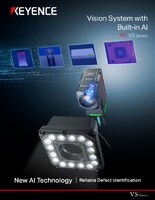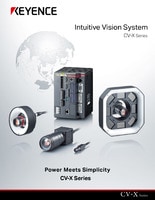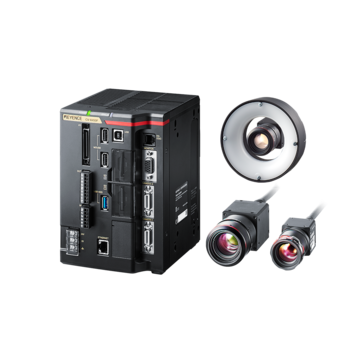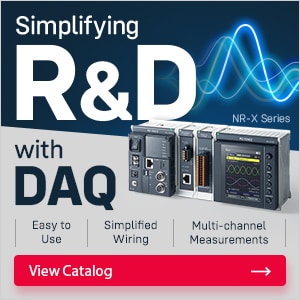Vision Systems
- Vision System with Built-in AI VS series
- Intuitive Vision System CV-X series
- Customizable Vision System XG-X series
- GigE camera and lighting for PC-based machine vision VJ series
- Inline 3D Inspection 3D Vision series
- 3D Vision-Guided Robotics 3D VGR series
- Line Scan Technology Line Scan series
- 2D Vision-Guided Robotics 2D VGR series
- LED Lighting CA-D series
- Lenses (for Machine Vision) CA-L series
- Machine Vision System Database VisionDatabase series
- Automotive
- Automation Equipment/Machine Building
- Electric Vehicles
- Medical Device Manufacturing
- Food/Beverage Packaging
- Semiconductor/Manufacturing Electronics
- Vision-Guided Robotics
- Solar
- Logistics
- Commodities
- Paper Manufacturing
- Machine Tools
- Electronic Device
- Printing
- Mining/Metals
- Fabric/Textile
- Tobacco
- Marine
- Aerospace
Solar Cell Inspection for the Semiconductor and Manufacturing Electronics Industry
The key to properly functioning solar cells is consistent, reliable inspections. However, with the growing renewable energy sector, these inspection demands have become overwhelming to handle manually.
KEYENCE's advanced AI vision systems
and customizable programming options ensure accurate and reliable inspections for every production stage. Our XG-X and VS Series vision systems for the semiconductor and manufacturing electronics industry
can deliver accurate defect detection, including micro-crack identification.
We’re here to provide you with more details.
Reach out today!

Vision Systems for Inspection of Solar Cells
KEYENCE vision systems deliver precise, high-speed solutions for solar cell inspection. The use VS Series and XG-X Line scan Series use high-resolution cameras and intelligent algorithms to accurately detect cracks, scratches, and misalignments that impact solar cell performance, eliminating the subjectivity of manual inspections and providing consistent results. Our vision systems improve efficiency and ensure compliance with production standards by streamlining quality control and reducing inspection times.
Customizable Vision System: XG-X Series
The XG-X Series has the fastest performance in the industry. Engineered for adaptability, these systems combine user flexibility with highly accurate performance for advanced inspection applications.
Vision System with Built-in AI: VS Series
The VS Series offers AI and rule-based tools, allowing users to choose the system that best fits their specific solar cell inspection needs. Additionally, this system provides advanced optical zoom and intuitive software.
Intuitive Vision System: CV-X Series
The CV-X Series includes intuitive vision systems featuring interactive menus and LumiTraxTM cameras. Its scalability is ideally suited for solar cell inspection, particularly for defect detection in most high-volume industries.
Curious about our pricing?
Click here to find out more.

Challenges in Solar Cell Color Inspection
Material Texture and Surface Reflectivity
Variations in texture and reflectivity across solar cells can lead to inconsistent light absorption, making it difficult to detect subtle color differences that may indicate defects or irregularities.
Subtle Color Variations
Minor color changes, often caused by coatings or electrode inconsistencies, are hard to identify using traditional visual inspection methods. These undetected defects can progress into production, causing costly quality issues.
Uneven Lighting Conditions
Inconsistent lighting across inspection environments or panel orientations can skew color detection results, reducing accuracy and making it challenging to maintain reliable quality control.
Manufacturing Inconsistencies
Variations in manufacturing processes, including coatings and layering, can result in color inconsistencies that complicate inspections without precise, high-resolution imaging and intelligent vision algorithms.
Discover more about this product.
Click here to book your demo.

FAQs About Solar Cell Defect Inspection
How Do KEYENCE Vision Systems Detect Subtle Defects Like Micro-Cracks or Color Variations?
KEYENCE vision systems use advanced image processing and AI to detect tiny defects like micro-cracks and color variations. They quickly identify solar cell surface abnormalities by analyzing images at high speed.
How Does the XG-X/VS Series Improve Solar Cell Color Inspection?
This fine-tuned technology minimizes the chance of false defect detection and improves overall product quality by using high-resolution cameras and precise lighting control.
Can the VS Series Handle Uneven Lighting Conditions During Solar Cell Inspection?
Yes. The VS Series uses optical zoom and AI-based tools to stabilize inspections, delivering accurate and reliable solar cell defect inspection. The VS Series can perform effectively even under uneven and inconsistent lighting conditions.
How Does Solar Cell Color Inspection Help Improve Product Quality?
Accurate color inspection identifies subtle defects early in production, ensuring solar cells consistently meet strict performance standards. Manufacturers can improve quality control by reducing variability and detecting issues before assembly. Overall, this improves the reliability of the final product.
How Does Solar Cell Visual Inspection Contribute to Reducing Defective Products?
Visual solar cell inspection helps identify defects before assembly. With this safeguard, faulty cells are prevented from progressing through production. This process also reduces waste and minimizes rework. It also verifies that only high-quality solar cells are shipped.
We’re here to provide you with more details.
Reach out today!

Related Downloads
Related Products
Industries
- Automotive
- Automation Equipment/Machine Building
- Electric Vehicles
- Medical Device Manufacturing
- Food/Beverage Packaging
- Semiconductor/Manufacturing Electronics
- Vision-Guided Robotics
- Solar
- Logistics
- Commodities
- Paper Manufacturing
- Machine Tools
- Electronic Device
- Printing
- Mining/Metals
- Fabric/Textile
- Tobacco
- Marine
- Aerospace





